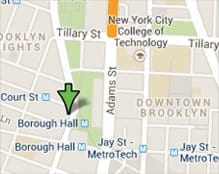Defining theft by false promise
It is easy to understand your surprise at being called a thief by your neighbor. You always thought the grill you got from him a few years back was an honest transaction. Sure, you agreed to do a financial assessment of his home in exchange, yet you thought he understood why you had to put off getting it done. Many of those that our team here at [nap_names id=”FIRM-NAME-1″] Attorney at Law have worked with over the years have faced similar scenarios. Like them, you might assume that your neighbor does not have a leg to stand on when accusing you of stealing. Unfortunately, that may not be the case.
Section 155.05 of New York’s Penal Law lists all of the cases that qualify as larceny. Included among them is “false promise.” Obtaining something through false promise means that you received something from another in exchange for the promise of reciprocating services or goods to him or her in the future, but then never fulfilled that obligation. Whereas you might simply see that as a simple misunderstanding ( one that you have every intention to remedy), others might see it as being criminally serious.
Per the law, however, there are certain conditions that must be proven before you can be charged with theft by false promise. These are:
- You intended to defraud the person you were dealing with
- You did indeed obtain the assets or property at issue
- You had no intention of fulfilling your promise
It should be noted that the mere fact that a promise was not reciprocated is not enough to convict you of this crime; intent is a required element in order to pursue such a charge. You can learn more about the various types of theft by browsing through our site.
Office Location
Neil S. Ruskin
188 Montague Street Suite 900
Brooklyn, NY 11201
Local: (718) 237-1547
Fax: 718-875-4011












